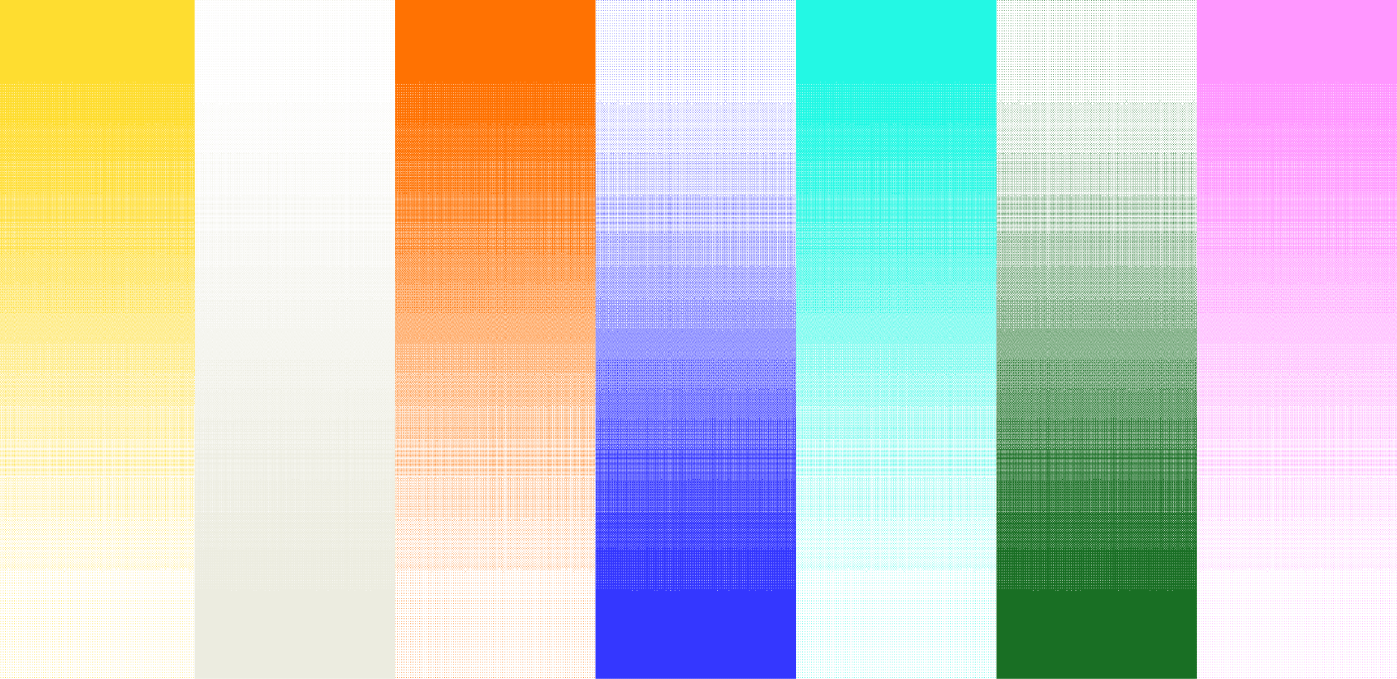![[background image] image of a work desk with a laptop and documents (for a ai legal tech company)](https://cdn.prod.website-files.com/693748580cb572d113ff78ff/69374b9623b47fe7debccf86_Screenshot%202025-08-29%20at%2013.35.12.png)

AI image generators have rapidly transformed the landscape of digital media creation. These tools have become indispensable for developers looking to enhance their applications with cutting-edge visuals. As the demand for swift and high-quality image generation surges, it’s crucial to understand the diverse features, performance metrics, and costs associated with these tools.
However, with so many options available, developers face a significant challenge. How can they discern which AI image generator best meets their specific needs? Balancing speed, quality, and budget is no small feat. This is where informed decision-making becomes essential. By exploring the capabilities of various generators, developers can find the perfect fit for their projects.
AI visual creators have emerged as vital tools for developers looking to integrate advanced media features into their applications. With sophisticated machine learning algorithms, the imageai generator can generate visuals from textual descriptions or modify existing graphics, serving various industries like gaming and marketing. Prodia distinguishes itself in this competitive landscape with its high-performance APIs, delivering rapid visual generation and inpainting solutions at an impressive speed of just 190 milliseconds—making it one of the fastest options available.
Key Features of Prodia:
The market for AI image generation software, particularly the imageai generator, is projected to experience significant growth by 2025, reflecting the increasing demand for high-quality, swift image creation. Key players in this field, including DALL-E, Midjourney, and Stable Diffusion, each offer distinct features and performance metrics that cater to diverse programmer needs. Industry leaders highlight the transformative impact of the imageai generator in media generation, emphasizing its potential to streamline workflows and enhance creative processes.
As developers navigate this competitive environment, understanding the advantages and limitations of these resources—especially the unmatched speed and scalability of Prodia—is crucial for selecting the optimal solution to elevate their projects with AI-driven media generation capabilities.
When evaluating AI image generators, several key features emerge that highlight their distinct advantages:
Prodia: With an impressive ultra-low latency performance of just 190ms, Prodia is designed with a developer-first approach. It offers a comprehensive suite of APIs that facilitate seamless integration of generative AI tools for image generation and inpainting. Its emphasis on cost-effectiveness and user-friendly setup makes it particularly suitable for rapid deployment in various applications. Prodia is revolutionizing media generation with the fastest APIs available.
DALL-E: Renowned for its ability to generate highly detailed visuals from textual prompts, DALL-E stands out in creative applications. Acknowledged as CNET’s Editor’s choice for the best AI visual creator, it showcases excellence in its field. However, it may require a more complex setup process, which could be a factor for individuals seeking quick implementation.
Midjourney: This tool specializes in artistic visual generation, providing a range of unique styles and aesthetics. Recent updates have improved its ability to follow prompts accurately, enhancing its creative expression. While it shines in artistic abilities, its integration might not be as adaptable as those provided by Prodia, possibly restricting its attractiveness for creators focused on seamless workflows.
Stable Diffusion: As an open-source model, Stable Diffusion permits extensive customization, making it appealing to creators who seek control over their visual generation processes. The latest model, Stable Image Ultra, is recognized for generating high-quality visuals despite some accuracy problems. However, this flexibility often comes with a steeper learning curve, which may pose challenges for those less experienced in AI technologies.
This comparison highlights how each tool, such as the imageai generator, meets various creator needs, from ease of use and integration to creative flexibility and customization. Ultimately, this assists users in choosing the most appropriate AI visual generation solution.
When it comes to selecting an imageai generator, performance and cost are paramount.
Prodia grabs attention with its impressive output latency of just 190ms. This speed allows developers to implement solutions swiftly, making it a standout choice. In fact, Prodia is significantly faster than its competitors, which average a latency of 3594ms. Its cost-effective pricing model ensures accessibility for both startups and larger enterprises. Businesses leveraging this platform report an impressive ROI of $3.70 for every $1 invested, highlighting its financial advantages.
DALL-E offers high-quality outputs, but the cost can be a concern. The substantial computational resources required for generating detailed images may not fit every budget, making it less suitable for some users.
Midjourney typically operates on a subscription model. This can be economical for frequent users, yet it may lack the flexibility that Prodia provides, which is crucial for varying project needs.
Stable Diffusion, being open-source, allows for free usage. However, performance can fluctuate based on the hardware used, potentially leading to higher expenses for those needing robust infrastructure.
This analysis underscores the importance of balancing performance with budget constraints in the context of the imageai generator. Creators must navigate the challenge of achieving high-quality results without sacrificing speed or incurring excessive costs. Therefore, choosing the right resource becomes essential for success in product development.
In the fast-paced world of AI image generation, creators encounter a variety of tools, including the imageai generator, each offering distinct features, performance levels, and pricing tailored to diverse needs. Prodia stands out with its impressive speed, cost-effectiveness, and seamless integration, making it an attractive option for programmers eager to enhance their applications without the typical hurdles of AI workflows.
Ola Sevandersson, Founder and CPO at Pixlr, emphasizes this point: "The company has been instrumental in integrating a diffusion-based AI solution that transforms applications like Pixlr, enabling them to support millions of users with fast, cost-effective technology." This smooth integration allows creators to focus on building rather than setup, as Prodia simplifies complex AI elements into production-ready workflows.
As programmers explore their options, they must consider several key factors:
For example, while tools like Midjourney excel in creating hyper-realistic images, they often come with higher subscription fees that may not fit every budget. Conversely, platforms like Leonardo AI provide commercial usage even on free plans, appealing to startups and individual creators.
Real-world examples highlight the decision-making process; creators have noted that Prodia's ultra-low latency and creator-first approach significantly cut down their time from testing to deployment, often completing the transition in under ten minutes. This efficiency empowers teams to concentrate on innovation rather than configuration.
Today, creators increasingly prioritize platforms that offer flexibility and scalability, ensuring their chosen tools can adapt to evolving project requirements. By weighing these factors, developers can make informed decisions that align with their goals and budget constraints, ultimately enhancing their creative capabilities in the competitive landscape of AI imageai generator.
In the fast-evolving world of AI image generation, choosing the right tool is crucial for developers aiming to innovate. The landscape is rich with options, but platforms like Prodia stand out for their unique features and performance metrics tailored to diverse needs. Prodia, in particular, shines with its rapid image generation capabilities and cost-effectiveness, making it a prime choice for those looking to streamline their workflows.
While Prodia excels in speed and ease of integration, other tools such as DALL-E, Midjourney, and Stable Diffusion offer their own distinct advantages, including detailed visuals and artistic flexibility. Each platform strikes a different balance between performance and cost, highlighting the importance for developers to assess their specific project requirements carefully. Real-world examples illustrate how Prodia's efficiency has significantly reduced deployment times, allowing teams to focus on creativity rather than setup.
As the demand for AI image generation continues to rise, making informed choices becomes essential. Developers must weigh the features, performance, and costs of various tools to find the best fit for their projects. By doing so, they not only enhance their creative capabilities but also position themselves to thrive in an increasingly competitive landscape. The time to act is now—evaluate your options and choose the tool that will elevate your development process.
What are AI image generators used for?
AI image generators are used by developers to integrate advanced media features into applications, allowing for the creation of visuals from textual descriptions or modification of existing graphics.
What distinguishes Prodia from other AI image generators?
Prodia is distinguished by its high-performance APIs, offering rapid visual generation and inpainting solutions at a speed of just 190 milliseconds, making it one of the fastest options available.
What are the key features of Prodia?
The key features of Prodia include rapid image generation in 190 milliseconds and inpainting capabilities that enable smooth alteration of current visuals for enhanced artistic flexibility.
What is the projected market trend for AI image generation software by 2025?
The market for AI image generation software, particularly the imageai generator, is projected to experience significant growth by 2025, driven by increasing demand for high-quality and swift image creation.
Who are some key players in the AI image generation field?
Key players in the AI image generation field include DALL-E, Midjourney, and Stable Diffusion, each offering distinct features and performance metrics that cater to diverse programmer needs.
How does the imageai generator impact media generation?
The imageai generator has a transformative impact on media generation by streamlining workflows and enhancing creative processes for developers.
Why is it important for developers to understand the advantages and limitations of AI image generators?
Understanding the advantages and limitations of AI image generators, especially the speed and scalability of options like Prodia, is crucial for developers to select the optimal solution to enhance their projects with AI-driven media generation capabilities.
